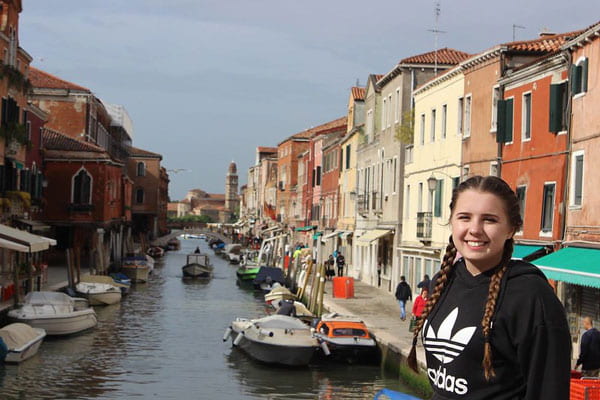When students travel abroad individually, such as for co-op, study abroad, Semester In, or research, they may be responsible for selecting and arranging their own housing. Your co-op coordinator, the Global Experience Office and Off-Campus Engagement and Support may be able to help by providing information on where other Northeastern students have previously lived. The Global Safety Office can assist with assessing the safety of specific neighborhoods. However, the university does not screen, recommend, vouch for, or take responsibility for the condition or safety of housing arrangements made by students.
Travelers should review the following websites before booking housing to avoid scams:
- https://international.northeastern.edu/ogs/student-support/resources/safety-scams/
- https://www.usa.gov/housing-scams
The following recommendations and guidance have been prepared to help students in their selection of accommodations:
Seeking Housing when Studying Abroad?
Students should use the housing options recommended and/or provided by their local host university or program provider. Some examples of program providers include CIEE and IES Abroad.
Seeking Housing when on Global Co-op
Ask your co-op employer for housing assistance or recommendations, and check with your co-op coordinator for places that students on that co-op have previously stayed. Where possible, talk to students who have participated in that co-op before you. Only use reputable housing providers if you are searching for housing on your own, and do NOT use unregulated website such as Craigslist or similar.
Prohibition on “Couch Surfing
“Couch Surfing” (the practice of moving from one house to another, sleeping in whatever spare space is available, floor or couch, generally staying a few days before moving on to the next house) is NOT an appropriate accommodation and is NOT Permitted.
Northeastern’s Position on Home-Sharing
The use of home and room rental sites like AirBnb and VRBO is strongly discouraged, particularly renting a room in a shared apartment with strangers. Check with your local host before booking housing. If securing housing prior to arrival is difficult, we recommend booking a hotel for a short period before finalizing your long-term housing arrangements.
General Guidance
Select Your Neighborhood
- Look for neighborhoods that offer proximity to place of study or work, and that are in communities that have adequate services, transportation, shops, police and health services appropriate to support your needs. (e.g., how would you get to work/school; where will you eat/buy food; is the transportation convenient, reliable, operating the hours you need it, cost effective, etc.);
- Google Maps is a good place to start your search. Check with local partners, as well as individuals who may have previously stayed in the area. Check with the U.S. Embassy in the area.
- The GSO and the Global Safety Network (GSN) can provide neighborhood safety information. Travelers can call GSN at +1.857.214.5332.
Select Your Accommodation
Hotel
- Check reviews online.
- Ask your host for their opinion of the safety around the hotel. You can also speak to GSO and GSN to verify this information.
- Ensure that the facility has the services you need.
- If you are traveling to a high-risk destination, you should meet with The GSO before submitting your petition,as part of developing your security plan, including accommodations and transportation.
Homestay
- Defined as accommodations where visitors are housed in the residence of a local “host” family.
- Homestays should be arrangedonly through a university partner such as CIEE, IES Abroad , etc.
- Request the safety reports of the homestay location and provider (e.g., safety reports should be “clear” from safety concerns; additionally, in countries where they are available, background checks of “host” family members are helpful).
- Ask which members of the host family stay overnight at the residence and if other students will be residing there. If there are people residing at your homestay site who are not authorized, immediately inform NUPD and your provider.
- Confirm there will be a lock on your room door, and once you arrive, inspect that it works. Develop a communication plan with your host family and provider and learn the local emergency number.
- If you feel unsafe or if you determine the residence does not meet your health or hygiene standards, ask to be moved to a new provider and/or inform NUPD.
Home Sharing
- Home-sharing, such as AirBnB and couch-surfing, is strongly discouraged due to the unregulated nature of the sharing economy and the difficulty for students to vet such arrangements.
- The university recommends against sharing apartments with strangers.
- If travelers disregard the university’s recommendation regarding home-sharing, travelers should consider renting the whole apartment/home or sharing the apartment with a known traveler. Also, follow the below guidance:
- Pay close attention to what is included and what is not in the rental.
- Check to see which fees are charged for the rental and if they are daily fees, monthly fees, or one-time payment fees.
- Ask questions about local area and accommodations.
- Read the cancellation policy carefully; they can vary tremendously.
- Look at the host’s profile verification and reviews.
- Verify the profile information.
- Let others know where you are and set up an emergency contact.
- Have a security plan.
- Ask questions about the safety features of the home/room. For example, determine if the residence has operational locks, smoke detectors, fire extinguisher, alarm system, etc. Don’t check-in to your home-share late at night. Have a backup plan if your flight is delayed.
